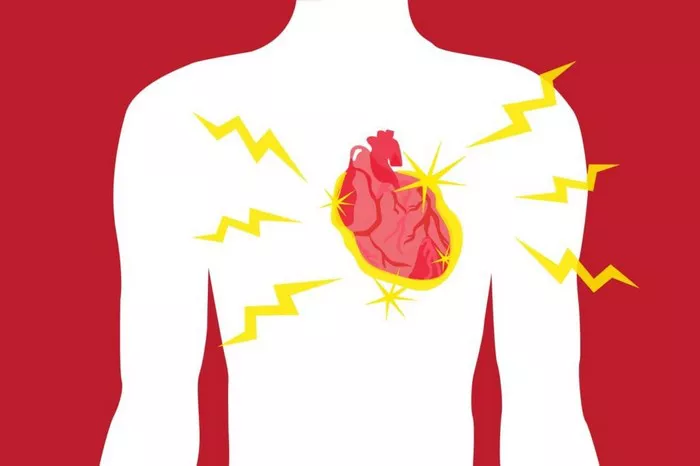Hypertrophic cardiomyopathy (HCM) is a genetic heart condition characterized by the abnormal thickening of the heart muscle, particularly the left ventricle. This condition affects people of all ages, from infants to older adults. While the prognosis for individuals with HCM can vary significantly depending on several factors, including the severity of the condition, timely diagnosis, and appropriate management, many individuals with HCM can lead relatively normal lives with proper medical care.
Understanding Hypertrophic Cardiomyopathy
HCM is caused by mutations in genes that control heart muscle growth. These mutations lead to the abnormal thickening of the heart muscle, which can impair the heart’s ability to pump blood effectively. This can result in symptoms such as shortness of breath, chest pain, palpitations, fainting, and fatigue. However, some individuals with HCM may not experience any symptoms and may only discover the condition during routine medical examinations or screenings.
Prognosis and Life Expectancy
The prognosis for individuals with HCM can vary widely. Many people with HCM have a normal life expectancy and can manage their condition effectively with appropriate medical care, lifestyle modifications, and regular monitoring. However, some factors can affect the prognosis and life expectancy of individuals with HCM:
1. Severity of the Condition: The severity of HCM can vary from mild to severe. Individuals with mild forms of HCM may have few or no symptoms and a relatively normal life expectancy. On the other hand, those with severe HCM may experience more significant symptoms and complications that can impact their prognosis.
2. Symptoms and Complications: The presence and severity of symptoms such as shortness of breath, chest pain, and fainting episodes can affect the prognosis. Additionally, complications such as heart failure, arrhythmias (abnormal heart rhythms), and sudden cardiac death can also impact life expectancy.
3. Age at Diagnosis: The age at which HCM is diagnosed can influence the prognosis. Early diagnosis and management of HCM, especially in childhood or young adulthood, can lead to better outcomes compared to late diagnosis or diagnosis in older adults.
4. Family History: HCM is a genetic condition, and individuals with a family history of HCM or sudden cardiac death may have an increased risk of complications. Genetic testing and screening of family members can help identify individuals at risk and guide management strategies.
5. Treatment and Management: Proper medical management, including medications to control symptoms, lifestyle modifications (such as avoiding strenuous exercise), and regular follow-up with healthcare providers, can significantly improve outcomes for individuals with HCM.
Managing Hypertrophic Cardiomyopathy
The management of HCM aims to alleviate symptoms, prevent complications, and improve overall quality of life. Treatment strategies may include:
1. Medications: Medications such as beta-blockers, calcium channel blockers, and ACE inhibitors may be prescribed to help control symptoms such as chest pain, palpitations, and high blood pressure.
2. Lifestyle Modifications: Lifestyle changes, including avoiding strenuous exercise and competitive sports, maintaining a healthy weight, avoiding alcohol and tobacco, and managing stress, can help manage HCM and reduce the risk of complications.
3. Regular Monitoring: Regular follow-up appointments with healthcare providers are essential to monitor the progression of HCM, assess symptoms, adjust medications if needed, and screen for complications such as arrhythmias.
4. Implantable Devices: In some cases, implantable devices such as pacemakers or implantable cardioverter-defibrillators (ICDs) may be recommended to manage arrhythmias and reduce the risk of sudden cardiac death.
5. Genetic Counseling: Genetic counseling and testing may be recommended for individuals with HCM and their family members to assess genetic risk, provide information about inheritance patterns, and guide family screening and management strategies.
Long-Term Outlook
With appropriate medical care and lifestyle modifications, many individuals with HCM can lead fulfilling lives and have a normal life expectancy. However, it’s essential to recognize that HCM is a lifelong condition that requires ongoing management and monitoring. Regular communication with healthcare providers, adherence to treatment recommendations, and awareness of symptoms and potential complications are crucial for optimizing outcomes and quality of life for individuals with HCM.
In conclusion, the prognosis for individuals with hypertrophic cardiomyopathy can vary depending on factors such as the severity of the condition, age at diagnosis, presence of symptoms and complications, family history, and adherence to treatment and management strategies. With proper medical care, lifestyle modifications, and regular monitoring, many individuals with HCM can live long and fulfilling lives. However, close collaboration between patients, healthcare providers, and support systems is essential to optimize outcomes and quality of life for individuals with this condition.


